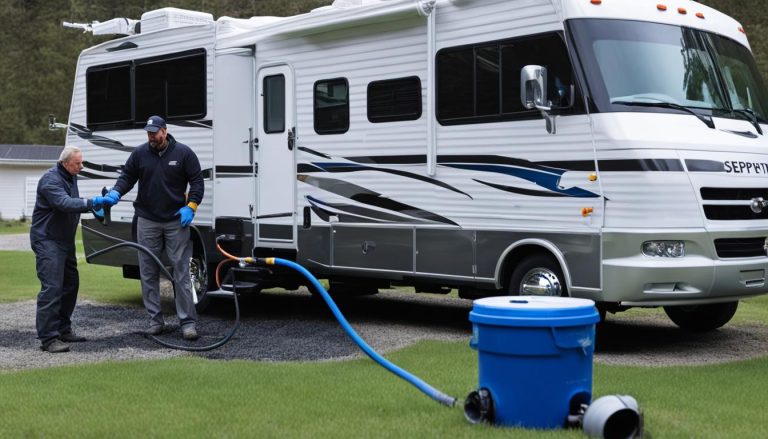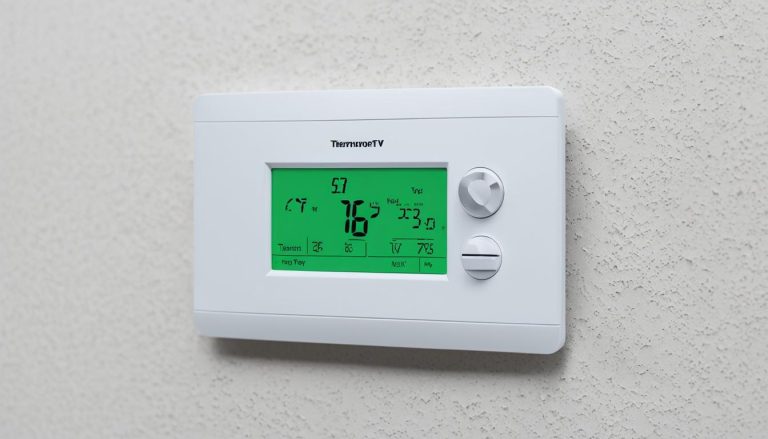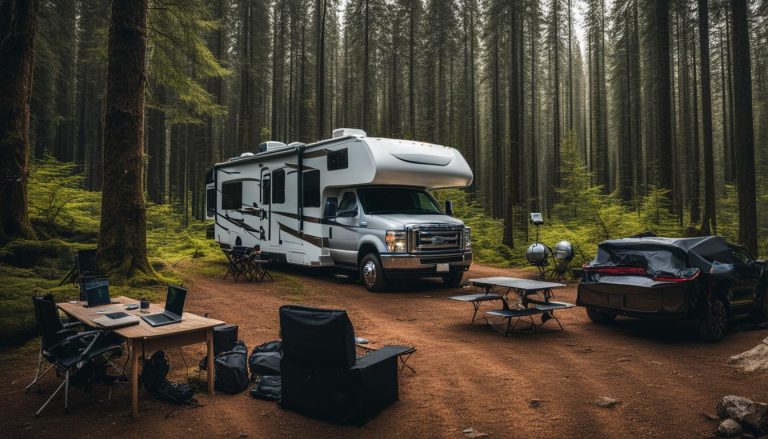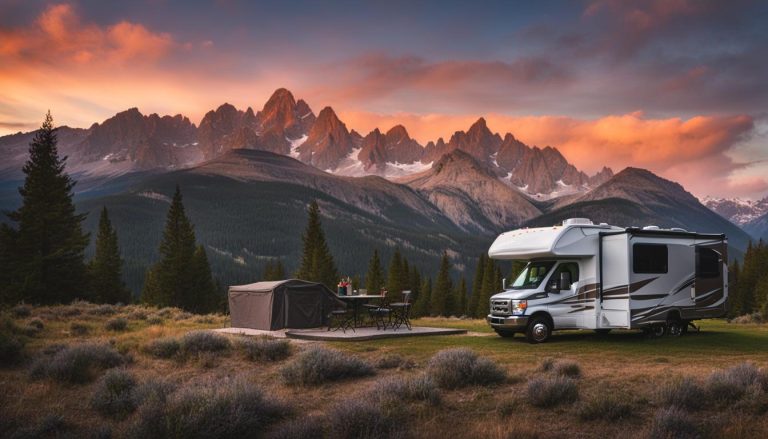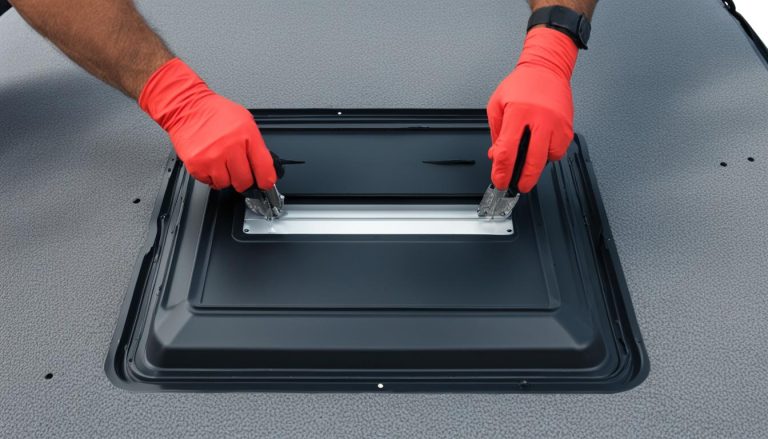RV Slide Out Seal Replacement Guide
gorvlifestyle.com and its partners may earn a commission if you purchase a product through one of our links
Slide outs are a fantastic feature in RVs. They provide additional space and make your RV feel more like home. However, slide outs require regular maintenance to ensure they function properly and stay leak-free. One common issue with slide outs is the deterioration of the rubber seals, which can lead to water leaks and costly damage.
In this comprehensive guide, we will walk you through the process of replacing RV slide out seals. We will cover the different types of seals, the importance of seal maintenance, and the step-by-step procedure for seal replacement. By the end of this guide, you’ll have all the knowledge and tools necessary to keep your slide outs in peak condition.
Key Takeaways:
- Regular maintenance is crucial for the longevity and proper functioning of RV slide outs.
- RV slide out seals are prone to deterioration and can lead to water leaks if not properly maintained.
- There are different types of RV slide out seals, including wiper seals, bulb seals, and “H” seals.
- Proactive cleaning, lubricating, and inspection of slide out seals can prevent future issues.
- Replacing RV slide out seals requires proper measurements, adhesive removal, and careful installation.
Common Types of RV Slide Out Seals
RV slide out seals play a crucial role in protecting your slide outs from water leaks and ensuring a comfortable and dry interior. Understanding the different types of slide out seals can help you choose the right ones for your RV and maintain them effectively.
There are several types of RV slide out seals available, each serving a specific purpose:
- Wiper seals: Wiper seals, also known as edge seals, are designed to flex and create a watertight barrier between the slide room and the RV when extended. They prevent water infiltration and help maintain a dry interior.
- Bulb seals: Bulb seals are compression seals that compress against the slide when it’s closed, creating a seal that prevents water from entering. They provide an additional layer of protection, ensuring a tight seal and minimizing the risk of leaks.
- “H” seals: The “H” seal is a dual-sided seal that offers a faster installation process and allows for individual replacement of damaged sections. It provides excellent protection against water infiltration and is commonly used in RV slide outs.
When replacing your RV slide out seals, it’s essential to choose the correct type and ensure a proper fit. This will help maintain the integrity of your slide outs and prevent water damage. Check the manufacturer’s recommendations or consult with an RV professional to determine the best seals for your specific RV model.
Now that you understand the different types of RV slide out seals, let’s explore the importance of regular maintenance to ensure their longevity and effectiveness in the next section.
Importance of RV Slide Out Seal Maintenance
Proper maintenance of RV slide out seals is crucial to prevent problems and ensure the longevity of your slide outs. Neglecting the maintenance of these seals can lead to various issues, including RV slide out seal problems and damage. Here are some of the reasons why maintaining your RV slide out seals is essential.
- Drying Out and Deterioration:
- Debris Accumulation and Damage:
- Preventative Maintenance:
- Cleaning and Lubricating:
RV slide out seals can dry out and deteriorate over time, especially when exposed to extreme temperatures and UV rays. This can cause the seals to become brittle, cracked, or even break, compromising their effectiveness in keeping water and debris out of your RV slide outs.
Debris such as leaves, dirt, and branches can accumulate on top of your RV slide outs. When the slide room is retracted, this debris can get trapped between the seals, causing friction and potential damage. Regular cleaning and maintenance of the slide out seals help prevent debris build-up and minimize the risk of seal damage.
Taking proactive measures to clean and lubricate your RV slide out seals can prevent future problems and extend their lifespan. By keeping the seals clean and free from debris, you can ensure that they remain pliable and effective in creating a watertight seal.
Regular cleaning and lubricating of RV slide out seals are simple yet effective maintenance steps. Use a mild soap and water solution to clean the seals, removing any dirt or debris. After cleaning, apply a silicone-based lubricant to keep the seals flexible and prevent drying out.
Proper Maintenance of RV Slide Out Seals
Follow these steps for preventative maintenance of your RV slide out seals:
- Inspect the seals regularly for any signs of damage or deterioration.
- Remove any debris or dirt that may have collected on top of the slide outs.
- Clean the seals using a mild soap and water solution.
- Apply a silicone-based lubricant to keep the seals pliable and prevent drying out.
By implementing these maintenance practices, you can reduce the risk of RV slide out seal problems and ensure that your slide outs remain in optimal condition, providing you with a leak-free and hassle-free RV experience.
| Benefits of RV Slide Out Seal Maintenance | Steps for RV Slide Out Seal Maintenance |
|---|---|
| Prevents water leaks into the RV | Regular inspection for damage |
| Minimizes the risk of debris entering the slide outs | Remove debris collected on top of slide outs |
| Ensures the longevity of slide out seals | Clean the seals with mild soap and water |
| Prolongs the life of slide outs | Apply silicone-based lubricant |
How to Replace RV Slide Out Seals
Replacing the slide out seals on your RV is an essential maintenance task to prevent water leaks and ensure the longevity of your slide outs. Follow these steps to successfully replace your RV slide out seals:
- Identify the type of seal: Begin by determining the specific type of slide out seal used on your RV. Common types include wiper seals, bulb seals, and “H” seals.
- Measure and cut new seals: Accurately measure the dimensions of the old seals and use those measurements to cut new ones. Precision is crucial for a proper fit.
- Prepare the area: Remove the old seal by carefully peeling it off. Clean and dry the area thoroughly to ensure a clean surface for the new seal.
- Remove adhesive residue: If there is any remaining adhesive, use an adhesive remover and a tuck/scraper tool to remove it completely.
- Apply new seal: Apply a silicone adhesive to the area where the old seal was removed and carefully position the new seal. Press firmly to ensure secure adhesion.
- Ensure proper alignment: Take caution when aligning the new seals to match the slide outs. Make sure they are aligned correctly to prevent potential leaks.
When replacing RV slide out seals, it’s important to have the right tools on hand. Here are the tools you’ll need:
- Adhesive remover
- Shop rags
- New adhesive (if necessary)
- Eye and hand protection
- Tuck/scraper tool
Remember to remove any inside nails that might obstruct the installation process and carefully remove any old adhesive from the outside. By following these steps and using the appropriate tools, you can ensure a successful and effective replacement of your RV slide out seals.
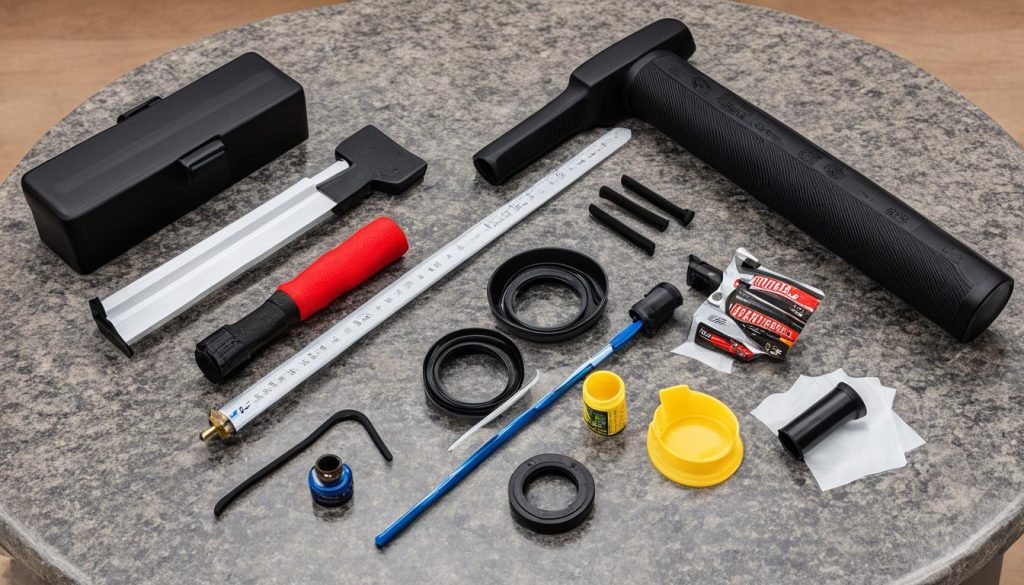
Note: Always refer to your RV’s owner manual or consult a professional for specific instructions and guidance tailored to your RV model.
Other Considerations for RV Slide Out Seals
When it comes to maintaining your RV slide out seals, there are a few additional considerations to keep in mind. These can help enhance the performance and longevity of your seals, ensuring a reliable and leak-free experience.
1. Additional Seal Enhancements
One way to improve the effectiveness of your RV slide out seals is by adding insulation patches. These patches act as an extra barrier, preventing air movement and increasing the overall efficiency of your RV’s insulation. By reducing drafts and temperature transfer, insulation patches can help create a more comfortable interior climate.
2. Sealing Products for RV Slide Outs
When replacing your RV slide out seals, it’s essential to choose the right sealing products. Silicone-based sealants are highly recommended for adhering new seals to your RV. These sealants provide a strong and durable bond, ensuring that the seals stay in place for an extended period.
3. Slide Toppers
Slide toppers are an excellent addition to your RV slide outs, offering extra protection against debris, leaves, and branches. By installing slide toppers, you can minimize the accumulation of dirt and debris on your slide out seals, reducing the need for routine maintenance. Additionally, slide toppers help shield your slide outs from UV rays, prolonging the lifespan of your seals.
4. Table: Sealing Products Comparison
| Product | Features | Benefits |
|---|---|---|
| Brand A Silicone Sealant | Chemical-resistant | Long-lasting seal |
| Brand B Sealant Tape | Easy application | Durable and flexible |
| Brand C Spray Sealant | Quick-drying | Provides a watertight seal |
When choosing a sealing product, consider factors such as ease of application, durability, and suitability for your specific RV slide out seals.
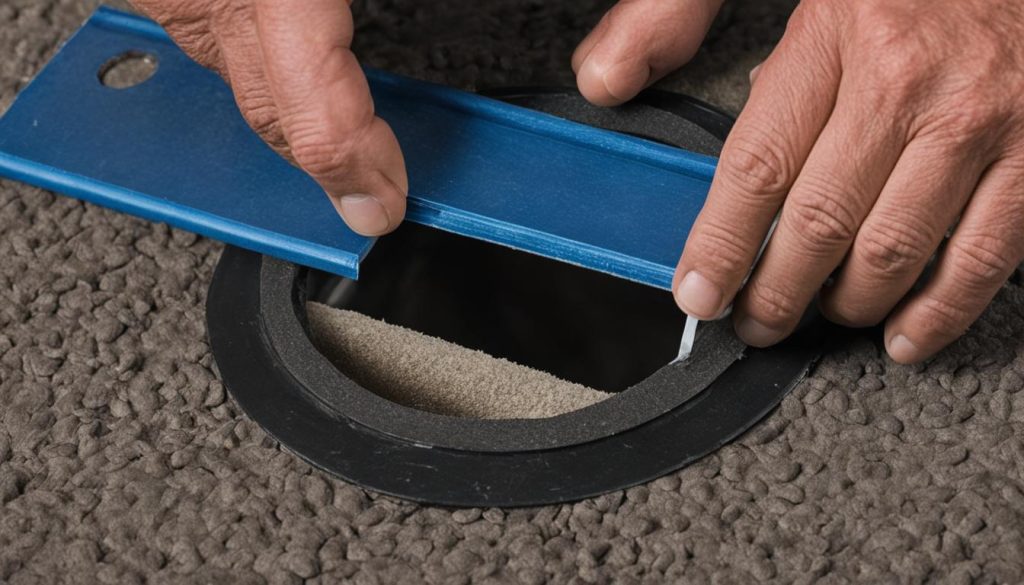
Remember, maintaining your RV slide out seals is crucial for preventing water leaks and keeping your slide outs in good condition. By considering these additional seal enhancements, using appropriate sealing products, and investing in slide toppers, you can ensure a long-lasting and hassle-free RV experience.
Conclusion
Proper maintenance and replacement of RV slide out seals are crucial for ensuring leak-free slide outs and preventing water damage. By following the steps and tips provided in this guide, you can confidently replace and maintain your RV slide out seals.
Regular cleaning and lubricating of the seals, along with routine inspections, are essential maintenance tasks that can help prolong their lifespan. This will enable them to effectively keep water out and maintain the integrity of your RV’s slide outs.
Remember, neglecting slide out seal maintenance can lead to costly repairs and potential water leaks. By taking the time to inspect and maintain your RV slide out seals on a regular basis, you can enjoy worry-free travels and comfortable living in your RV.
FAQ
How often should RV slide out seals be replaced?
RV slide out seals should be replaced when they show signs of damage, deterioration, or are no longer effectively sealing the slide outs. It’s recommended to inspect them regularly and replace as needed.
Can I replace RV slide out seals myself?
Yes, many RV owners choose to replace their slide out seals themselves. With the right tools and instructions, it can be a DIY project. However, if you’re unsure or uncomfortable, it’s best to consult a professional.
How do I know which type of slide out seal I have?
The most common types of RV slide out seals are wiper seals, bulb seals, and “H” seals. Take a close look at the seal to identify its shape and structure. You can also consult your RV’s manual or contact the manufacturer for specific information.
Can I use any adhesive to install new RV slide out seals?
It’s recommended to use silicone adhesive when installing new RV slide out seals. Silicone-based sealants offer good adhesion and durability, helping to ensure a secure and long-lasting seal.
Do I need to remove the old adhesive when replacing RV slide out seals?
Yes, it’s important to thoroughly remove the old adhesive before installing new slide out seals. This will ensure proper adhesion and prevent any issues with the new seals sticking.
How can I prevent debris from damaging the RV slide out seals?
Regularly clean the top of the slide outs to remove any debris that could potentially damage the seals when retracting. You can use a soft brush or cloth to gently sweep off any dirt or leaves.
Are slide toppers necessary to protect RV slide out seals?
While not mandatory, slide toppers provide an additional layer of protection for RV slide out seals. They can minimize the accumulation of debris on the slide outs and reduce the need for frequent seal maintenance.
How long do RV slide out seals typically last?
The lifespan of RV slide out seals can vary depending on factors such as weather conditions and overall maintenance. With proper care and regular inspections, slide out seals can last several years before needing replacement.
Can I use any lubricant on RV slide out seals?
It’s recommended to use RV seal lubricants specifically designed for slide out seals. These lubricants help to keep the seals pliable and prevent drying out, ensuring optimal functionality and longevity.

